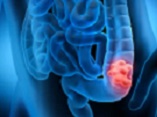Effects of First Wave of COVID-19 on Colon Cancer Multi-disciplinary Team Performance: A Two-Year Analysis
Effects of COVID-19 Outbreak on 2-year Outcomes of Colon Cancer Management
DOI:
https://doi.org/10.31661/gmj.v13i.3305Keywords:
Bowel Cancer; Colon Cancer; COVID-19; Survival RateAbstract
Background: We investigated the effects of COVID-19-related delay on two-year outcomes of colon cancer treatment during the first wave of the pandemic. Materials and Methods: Ninety-two patients were referred for bowel cancer at our National Health Service (NHS) trust between March and July 2020, and 41 patients were treated for colon cancer and followed up (a two-year) through a multidisciplinary team (MDT). Treatment delays and overall survival (OS) were also assessed. Results: Treatment delays were observed in 48% of patients. The average delay was 31 days beyond the 62-day mark (P<0.001). Logistic and binary logistic regression models showed that a comorbid diagnosis of respiratory disease had a significant effect on delays in management and two-year outcomes (P=0.04), but without the likelihood of upstaging or a poorer outcome (P=0.942). The overall survival rate was 81.5%. Eight percent of bowel cancer surgeries could have been avoided if endoscopic visualization and biopsy were available, and 8% more surgeries could have been performed laparoscopically without fear of surrounding aerosols. Conclusion: The findings showed that oncologic care provided minimal disruption to trust during the COVID-19 pandemic owing to a quick association between the NHS site and a green non-NHS site, resulting in acceptable two-year outcomes for colon cancer patients.
References
-Cancer Research UK. Together we are beating cancer. England: Cancer Research UK; Available from: https://www.cancerresearchuk.org/health-professional/cancer-statistics/statistics-by-cancer-type/bowel-cancer.
Almilaji O, Parry SD, Docherty S, Snook J. Evidence for improved prognosis of colorectal cancer diagnosed following the detection of iron deficiency anaemia. Scientific Reports. 2021;11(1):13055.
https://doi.org/10.1038/s41598-021-92623-z
PMid:34158616 PMCid:PMC8219720
Rentsch M, Schiergens T, Khandoga A, Werner J. Surgery for colorectal cancer-trends, developments, and future perspectives. Viszeralmedizin. 2016;32(3):184-91.
https://doi.org/10.1159/000446490
PMid:27493946 PMCid:PMC4945784
Cheong CK, Nistala KRY, Ng CH, Syn N, Chang HSY, Sundar R et al. Neoadjuvant therapy in locally advanced colon cancer: a meta-analysis and systematic review. Journal of gastrointestinal oncology. 2020;11(5):847.
https://doi.org/10.21037/jgo-20-220
PMid:33209481 PMCid:PMC7657836
Popek S, Tsikitis VL. Neoadjuvant vs adjuvant pelvic radiotherapy for locally advanced rectal cancer: Which is superior? World journal of gastroenterology: WJG. 2011;17(7):848.
https://doi.org/10.3748/wjg.v17.i7.848
PMid:21412494 PMCid:PMC3051135
Cucinotta D, Vanelli M. WHO declares COVID-19 a pandemic. Acta bio medica: Atenei parmensis. 2020;91(1):157.
Greenwood E, Swanton C. Consequences of COVID-19 for cancer care-a CRUK perspective. Nature reviews Clinical oncology. 2021;18(1):3-4.
https://doi.org/10.1038/s41571-020-00446-0
PMid:33097915 PMCid:PMC7582444
Morris EJ, Goldacre R, Spata E, Mafham M, Finan PJ, Shelton J et al. Impact of the COVID-19 pandemic on the detection and management of colorectal cancer in England: a population-based study. The lancet Gastroenterology & hepatology. 2021;6(3):199-208.
https://doi.org/10.1016/S2468-1253(21)00005-4
PMid:33453763
Finan P, Smith J, Walker K, van der Meulen J, Greenaway K, Yelland A et al. The Association of Coloproctology of Great Britain and Ireland. Colorectal Disease. 2007;9(6):577.
https://doi.org/10.1111/j.1463-1318.2007.01304.x
Clifford R, Harji D, Poynter L, Jackson R, Adams R, Fearnhead N et al. Rectal cancer management during the COVID-19 pandemic (ReCaP): multicentre prospective observational study. British Journal of Surgery. 2021;108(11):1270-3.
https://doi.org/10.1093/bjs/znab129
PMid:33961013 PMCid:PMC8136009
Angelini M, Teglia F, Astolfi L, Casolari G, Boffetta P. Decrease of cancer diagnosis during COVID-19 pandemic: a systematic review and meta-analysis. European Journal of Epidemiology. 2023;38(1):31-8.
https://doi.org/10.1007/s10654-022-00946-6
PMid:36593334 PMCid:PMC9807424
Mazidimoradi A, Tiznobaik A, Salehiniya H. Impact of the COVID-19 pandemic on colorectal cancer screening: a systematic review. Journal of gastrointestinal cancer. 2022;53(3):730-44.
https://doi.org/10.1007/s12029-021-00679-x
PMid:34406626 PMCid:PMC8371036
Boyle JM, Kuryba A, Blake HA, Aggarwal A, van der Meulen J, Walker K et al. The impact of the first peak of the COVID-19 pandemic on colorectal cancer services in England and Wales: A national survey. Colorectal Disease. 2021;23(7):1733-44.
https://doi.org/10.1111/codi.15622
PMid:33686679 PMCid:PMC8250906
Currie GP, Kennedy A-M, Chetty M. Covid-19 and the Multidisciplinary Team Meeting:'Should Old Acquaintance be Forgot?'. SAGE Publications Sage UK: London, England; 2021. p. 327-9.
https://doi.org/10.4997/jrcpe.2021.402
PMid:34882127
Santoro GA, Grossi U, Murad-Regadas S, Nunoo-Mensah JW, Mellgren A, Di Tanna GL et al. DElayed COloRectal cancer care during COVID-19 Pandemic (DECOR-19): Global perspective from an international survey. Surgery. 2021;169(4):796-807.
https://doi.org/10.1016/j.surg.2020.11.008
PMid:33353731 PMCid:PMC7670903
Siegel R, DeSantis C, Jemal A. Colorectal cancer statistics, 2014. CA: a cancer journal for clinicians. 2014;64(2):104-17.
https://doi.org/10.3322/caac.21220
PMid:24639052
Al Saoudi T, Bahri S, Khasawneh F, Bhardwaj N, Garcea G. Two-Week Wait Gastrointestinal (GI) Cancer Pathway: A Single Tertiary Centre Experience During the COVID-19 Pandemic. Cureus. 2023;15(3): 36857.
https://doi.org/10.7759/cureus.36857
PMid:37123723 PMCid:PMC10147491

Published
How to Cite
Issue
Section
License
Copyright (c) 2024 Galen Medical Journal

This work is licensed under a Creative Commons Attribution 4.0 International License.







